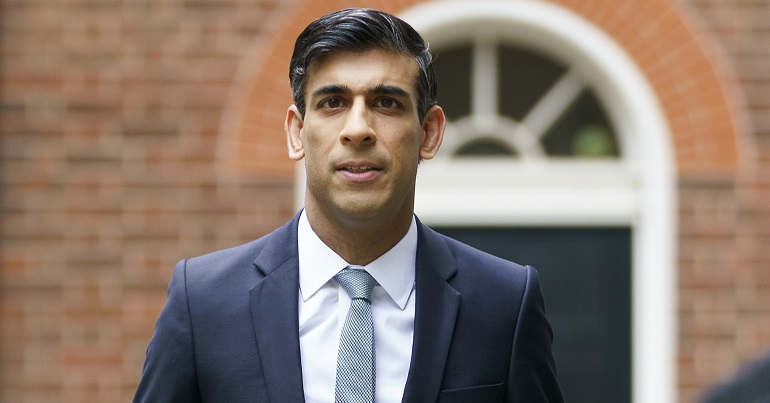Although the list is quite a long one, we take a look at some of Sunak’s worst moments as chancellor...

Rishi Sunak has quit as chancellor, saying that the “public rightly expect government to be conducted properly, competently and seriously”, after Boris Johnson’s disastrous handling of the Chris Pincher scandal.
Although the list is quite a long one, we take a look at some of Sunak’s worst moments as chancellor
1.Plunging a further 500,000 children into poverty
As millions struggled with soaring inflation and energy bills, the chancellor’s refusal to do more to help low-income families meant that a further half a million children were plunged into poverty.
Analysis by the Resolution Foundation found 1.3 million Britons are set to fall below the poverty line next year.
Despite calls for more targeted help for the most vulnerable and raising benefits in line with inflation, the chancellor refused. In the fifth largest economy in the world, child poverty is now expected to hit 5 million next year.
2. Universal credit cut
The chancellor refused to keep in place the £20 uplift to universal credit, which was brought in place during the pandemic and acted as a lifeline to millions of families on low-incomes, despite the pleas of charities and politicians.
The removal of the uplift meant that millions of households faced an immediate 5% loss in their income.
The cut saw universal credit claimants lose £1,040 each year. This is equivalent to a £86.60 budget cut each month, which charities warned will leave many struggling to fund food, bills and other essentials.
More than 40 charities also warned that cutting the £20-a-week Universal Credit increase would put young people at risk of repeat homelessness, warnings that the chancellor ignored.
3.Being issued with a fixed penalty notice for breaking the law
As allegations of lockdown breaking parties in Downing Street and Whitehall initially emerged, Rishi Sunak was pretty confident that he had done nothing to break the law.
However, the former chancellor was issued with a fixed penalty notice by the Met Police. The chancellor said after the fine: “I can confirm I have received a fixed penalty notice from the Metropolitan Police with regards to a gathering held on June 19 in Downing Street. I offer an unreserved apology. I understand that for figures in public office, the rules must be applied stringently in order to maintain public confidence. I respect the decision that has been made and have paid the fine.”
4. Hiking taxes on everybody else while his wife claimed non-dom status
The chancellor has hiked taxes on the British people to their highest level since the 1940s, while his own family benefited from non-dom status, saving millions of pounds in taxes.
It was revealed earlier in the year that Sunak’s multi-millionaire wife, Akshata Murty, who receives about £11.5m in annual dividends from her stake in the Indian IT services company Infosys, declared non-dom status, a scheme that allows people to avoid tax on foreign earnings.
Murthy later announced that she would be giving up her non-dom status and start paying British taxes on all her worldwide income, after the saga threatened to derail Sunak’s career.
5. Subsidies for fossil fuels
Amid the climate emergency, Sunak announced tax relief measures that incentivised energy firms to invest in fossil fuel extraction, despite the government’s rhetoric on tackling climate change.
The announcement led to a rebuke from climate campaigners and opposition politicians, as Sunak unveiled the measures during a package designed to help families with the cost of living crisis.
Announcing a temporary windfall tax, Sunak also said that oil and gas companies would get a big tax cut if they extract more fossil fuels in the UK.
Basit Mahmood is editor of Left Foot Forward
To reach hundreds of thousands of new readers we need to grow our donor base substantially.
That's why in 2024, we are seeking to generate 150 additional regular donors to support Left Foot Forward's work.
We still need another 117 people to donate to hit the target. You can help. Donate today.



